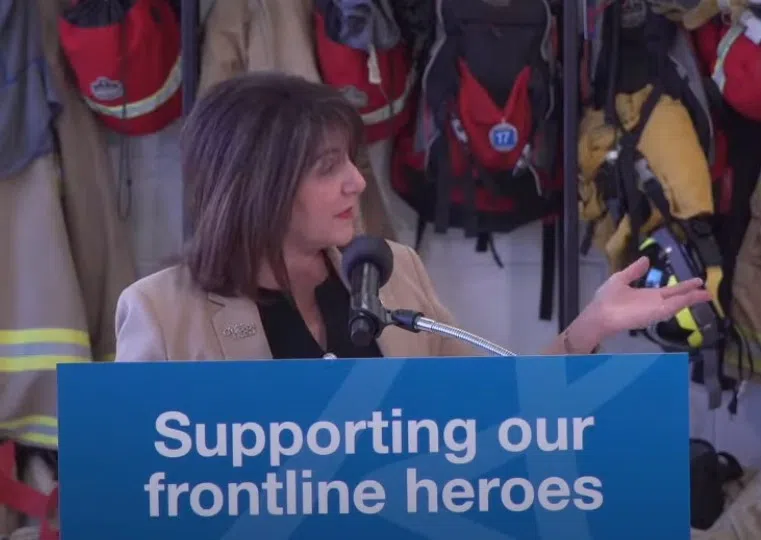Medical first responder (MFR) agencies in Alberta are set to receive targeted funding to support the highest quality of emergency care.
According to the Alberta government, MFRs are often the first to arrive on the scene and provide life-saving care until an ambulance arrives, especially in remote communities. The Province says through the MFR Program, $3.85 million will be distributed to support efforts to improve the quality of emergency care in Alberta communities.
Officials say this support will increase the funding by $3.75 million this year and will expand the program to include medium and large MFR agencies across Alberta, including fire departments, urban, remote and rural municipalities and Indigenous communities participating in the MFR Program. Officials say more than 200 MFR partner agencies across Alberta should receive targeted funding for emergency medical services (EMS).
“Medical first responders are unsung heroes and often the first on the scene of an emergency, particularly in remote areas where access to immediate care is limited,” says Adriana LaGrange, Minister of Health. “Their swift intervention can mean the difference between life and death while waiting for EMS services. Investing in these agencies will help to make sure they have the tools and training they need to provide timely and life-saving emergency care when and where it’s needed.”
Martin Long, Parliamentary Secretary for Rural Health says, “Medical first responders continue to be an essential component to emergency medical services provision, particularly in our rural and remote communities. At times they are indeed the only response available, and I am proud that our government is recognizing how vital their services are by way of this funding announcement.”
Officials say the financial supports offered consider two main streams. The first stream is said to build on the successes from previous years of the MFR Program and will be provided for various supplies and services, including purchasing modern automated external defibrillators (AED), medical kits, CPR mannequins, instructor development and front-line responder training courses.
The Province says the second stream of funding, introduced this year, totals $2.5 million and will directly support MFR agencies to offset some of the growing costs involved with providing MFR, including increased event volumes, population growth and general inflation of equipment and fuel.
“Medical first responders are important partners that co-respond with EMS to many 911 emergencies, often providing care to patients,” says Blaine Barody, Manager for Medical First Response and Public Access to Defibrillation with Alberta Health Services. “Having the opportunity to expand our support beyond small rural agencies helps us achieve our goal of providing the best emergency care to Albertans, regardless of where they live.”
According to the government, the MFR Program is designed to provide value and direct supports to MFR partners across several areas and should continue to seek out opportunities to strengthen the quality of care patients are receiving when they need emergency medical services. Officials say this investment will move forward efforts to enhance health care services for Albertans and will help address the diverse needs and challenges of Alberta’s remote, rural and Indigenous communities.
“We are committed to working with our MFR front-line partners and their fire departments to ensure residents have access to high-quality emergency services when and where they need it. This additional funding will help ensure our MFR partners are trained and equipped to provide patient care during 911 medical emergencies, increasing the quality of care for patients,” concludes Murray Crawford, Interim Provincial Director, Alberta Health Services.














Comments